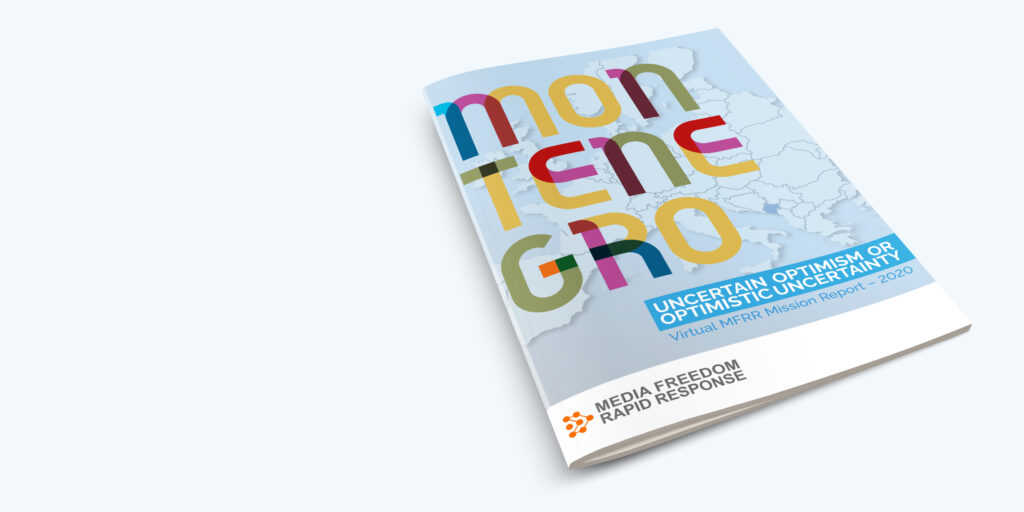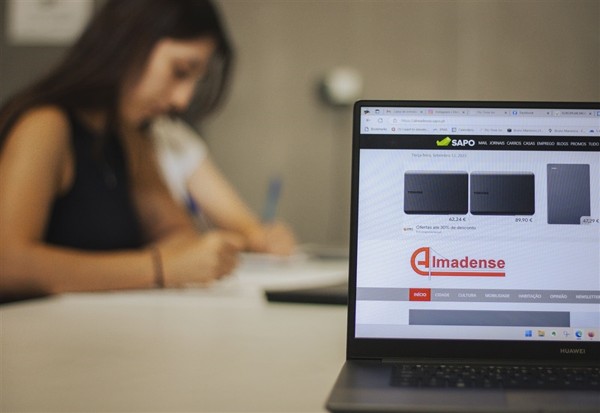The International Press Institute (IPI) joins its partners in the Media Freedom Rapid Response (MFRR) and the South East Europe Media Organisation (SEEMO) in urging the new government of Montenegro to put press and media freedom high on its agenda as the country enters a new era.
The call marks the launch of a new report – Uncertain Optimism, or Optimistic Uncertainty: Virtual MFRR Mission Report – which summarises the findings of a virtual fact-finding mission carried out by seven international civil society organisations to Montenegro in September 2020.
The report stresses that the formation of a new government on December 4 represents a chance to break from the past after 31 unbroken years of Democratic Socialist (DPS) rule under Milo Đukanović’s leadership.
To advance media freedom and, ultimately, the country’s accession bid to the European Union (EU), the new administration must commit to the necessary reforms for building and maintaining a free and pluralist media landscape, the report finds.
A central tenet of the much-needed change of direction is the need to dismantle the entrenched polarisation that has defined Montenegrin politics, society and media for too long and ensure a free and fair playing field for every media outlet and actor to work safely.
During the mission the MFRR met with key stakeholders representing journalist unions, media outlets, NGOs, JUFREX (co-ordinated by the European Union and Council of Europe), the OSCE, the Commission for Monitoring Investigations of Attacks on Journalists and the Protector of Human Rights and Freedoms of Montenegro, which is the country’s National Human Rights Institution.
While there are no quick fixes, the report stressed, several actions can be identified that will be key to rebuilding trust and implementing sustainable reform. They include, among other pressing concerns, the following recommendations identified in the report:
- Ending impunity for crimes against journalists and media workers by ensuring police and prosecutors investigate all attacks and threats and bring perpetrators and the masterminds behind them to justice;
- Establishing shared standards and principles for the regulation of the media market that encourages a fair playing field;
- Continuing the reform of the public broadcaster;
- Reforming journalistic source protection and, generally, ensuring that all new or amended media laws are drafted in line with international standards and best practice on media freedom and pluralism.
To advance media freedom and the country’s EU accession bid, the new administration must commit to the necessary reforms for building and maintaining a free and pluralist media landscape.
These must conform with European standards and include support for public interest reporting, transparent funding, shared regulatory standards and a safe working environment free from attacks and threats, embedded in a broader system that respects the rule of law, in theory and in practice.
Click here to read the report in full.
Press Contact:
Faith Miyandazi, Head of Communications, ECPMF
E-Mail: [email protected]
Phone: +49 341 200403 17
The virtual mission was carried out as part of the Media Freedom Rapid Response (MFRR), which tracks, monitors and responds to violations of press and media freedom in EU Member States and Candidate Countries. The MFRR is organised by a consortium led by the European Centre for Press and Media Freedom (ECPMF) including ARTICLE 19, the European Federation of Journalists (EFJ), Free Press Unlimited (FPU), the Institute for Applied Informatics at the University of Leipzig (InfAI), International Press Institute (IPI) and CCI/Osservatorio Balcani e Caucaso Transeuropa (OBCT). The project is co-funded by the European Commission. The South East Europe Media Organisation (SEEMO) was also part of this mission.




